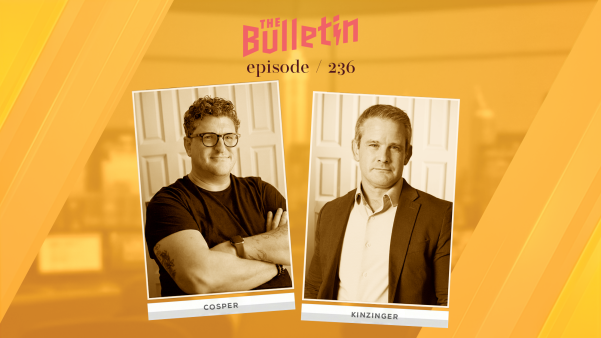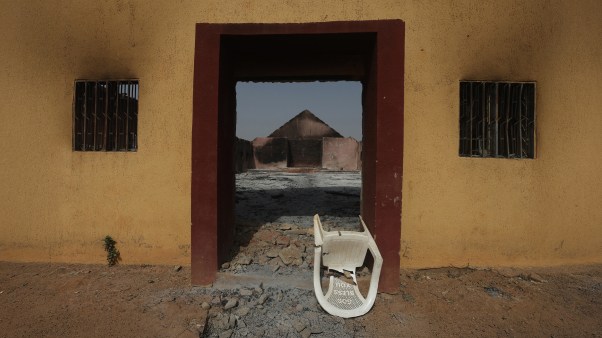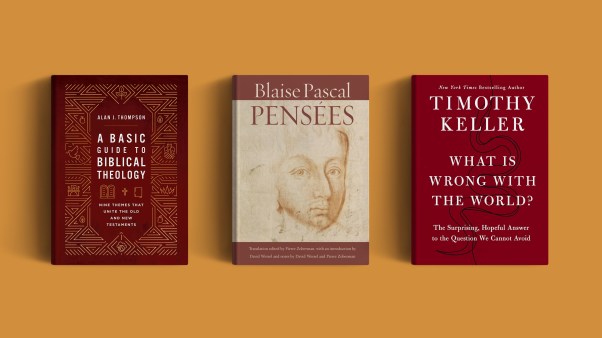We—the authors of this article—have not known each other for long. In fact, we met just over two years ago. In many ways, our differences are apparent. But there is far more that unites us than separate us: our shared love for the kingdom, gospel unity, and tennis.
At a time when pastors and ministry leaders struggle with loneliness and isolation, we recognize that we need healthy relationships. What if pastors and ministry leaders were encouraged that it was not only God who was for them (Rom. 8:31) but that a band of saints across dividing lines was supporting them as well? As we mentioned in our first article, don’t be surprised if life-giving relationships like ours are already within reach for you too.
In October 2003 Perimeter Church and seven other churches launched Unite, a movement of churches working together in Atlanta. It started with white, African-American, Hispanic-American, and Asian-American churches gathering for a collaborative weekend of serving in our communities and then celebrating together the following weekend.
Over 20 years later, significant collaborative efforts have taken place in our three areas of focus: supporting public schools, advocating for foster care and adoption, and fighting domestic sex-trafficking of minors. Nonprofit organizations such as Street Grace, who is focused on eradicating the sexual exploitation of children through prevention, protection, policy, and pursuit; Samaritan Health Centers of Gwinnett, who provide health and dental care for the poor and uninsured; and Salvation Army’s Home Sweet Home Initiative in Gwinnett have been born through Unite connections. But by far the biggest impact has been personal friendships and relationships.
I (Chip) grew up in a white country-club atmosphere and did not have any deep friendships with people of color until our group of pastors launched Unite. Over ten years ago, I joined three other members of the leadership team in committing to go deeper in friendship. Our goal was not to start another initiative or to work on Unite but to support one another in the trenches of our lives.
The “Hermanos” (“brothers” in Spanish and what we call ourselves) are Tito Ruiz, David Park, Bryan White, and myself. A Hispanic American, Asian American, African American, and white man developed a deep friendship out of the love of Christ.
It was the first time I truly experienced genuine friendships with people of other cultures. Our friendships have not always been easy, and there are times when we are frustrated with each other. We have different perspectives, but I’ve been transformed through our commitment to each other and our vision of intercultural unity. These brothers have been an important part of my support through painful episodes of significant depression and anxiety.
Through our brotherhood, I now long for more foretastes of Revelation 7:9–10 to be evident in local churches: that even now, each of us can see the beauty of “a great multitude … from every nation, from all tribes and peoples and languages” standing “before the throne and before the Lamb … crying out with a loud voice, ‘Salvation belongs to our God who sits on the throne, and to the Lamb!” (ESV).
Sometimes our relationships also lead to changes beyond our personal lives. In the children’s book The Lorax by Dr. Seuss, there’s a powerful moment when the small creatures living in Truffula trees try to speak up individually, but no one listens. It’s only when their voices come together that the world finally hears them and starts to pay attention. That scene is a great picture of what happens when people work together instead of trying to make change on their own.
Collaboration has real power. A mentor used to challenge me (Robert) with a question: “What can we do together that we can’t do alone?” That mindset has shaped how I think about gospel unity and working across lines of difference.
Too often, I see movements trying to make an impact and become louder by gathering more voices from their own tribe. But that’s like turning up just one note on a piano. It’s loud, but it’s still only one sound. What we need is a symphony—all the notes working together to create something beautiful.
Not long ago, I helped bring together key leaders from both the African American and Asian American communities. The goal was simple: to grow in understanding, to learn from one another, and to realize that we are stronger together than apart. When we work separately, even with the best intentions, our efforts can stall. But when our voices come together, united in the gospel, we can reflect the beauty of what Paul describes in Philippians 1:27, standing side by side for the faith of the gospel.
During our time together, we listened deeply, asked hard questions, and encouraged one another in our shared journey as minority communities. We also had breakout sessions where we could be honest about the challenges we carry, ask each other thoughtful questions, and explore how we could become real friends and support one another.
It wasn’t just a valuable time of learning—it was a glimpse into the richness of the body of Christ working together. It wasn’t perfect. But it was a meaningful step toward the kind of gospel unity we long to see.
In the world of church planting, I have been encouraged by how many healthy church-planters live out the values we’ve explored in this series—especially when it comes to kingdom collaboration. I’ve seen firsthand how these principles are already being practiced by faithful believers around the world.
For example, when I lived in Philadelphia, I was part of a monthly prayer gathering with pastors and leaders from nearly every church in our community. What began as a group of strangers eventually grew into a network of friends who genuinely cared for one another and supported each other in ministry.
When one of the churches decided to plant a new church in a nearby community, the support didn’t just come from the sending church. Other congregations stepped in to help. Some gave financial contributions and others donated books, chairs, or sound equipment. One church even passed along all their vacation Bible school materials—curriculum, stage props, and more—after their own VBS ended.
This group of churches shared a deep desire to celebrate together whenever God’s kingdom advanced. When one part of the body thrived, all rejoiced. They saw this new church plant as a fresh outpost for the gospel, offering more people in the community ongoing chances to hear and respond to Jesus Christ.
How do you approach relationships in your life? We’ve learned that one of the better ways is to meet new people with the presumption that we are already friends, unless told otherwise. What if we approached others in the body of Christ not with suspicion or guardedness but with the belief that we’re already on the same team?
What if we lived out Romans 12:10, striving to “outdo one another in showing honor,” and began every relationship with the assumption that we are for each other? What kind of strength would that give us? How might it change the way we face the challenges of ministry? This kind of posture matters—especially now. Gospel unity isn’t just an ideal. It’s a powerful reality we’re invited to live into. And it starts with how we choose to live out of these kingdom relationships.
Chip Sweney serves on the executive leadership team at Perimeter Church, where he has been a pastor for nearly three decades. He is also the executive director of the church’s Greater Atlanta Transformation Division, which leads Perimeter’s outward-focused ministries across the metro Atlanta area.
Robert Kim serves as an associate professor of applied theology and church planting at Covenant Seminary and the director of church planting at Perimeter Church in Atlanta. He planted churches during his pastoral career and currently serves as a board member for the missions organization Serge.










